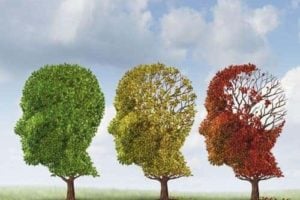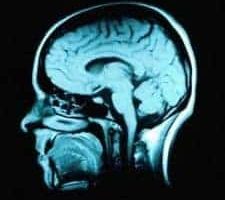american academy of neurology
Eating berries may lower risk of Parkinson’s
ST. PAUL, Minn. — New research shows men and women who regularly eat berries may have a lower risk of developing Parkinson’s disease, while men may also further lower their risk by regularly eating apples, oranges and other sources rich in dietary…
Parkinson’s Disease Linked to High Iron Intake
People with high levels of iron in their diet are more likely to develop Parkinson’s disease, according to a study in the June 10 issue of Neurology. People with both high levels of iron and manganese were nearly two times more likely to develop the disease than those with the lowest levels of the minerals in their diets. The study compared 250 people who were newly diagnosed with Parkinson’s to 388 people without the disease. Interviews were conducted to determine how often participants ate certain foods during their adult life.
Drug may work on secondary clots in stroke
Many stroke patients can be treated with clot-busting drugs to reduce their chances of death and disability. But for some patients, the treatment is unsuccessful because the clots reappear soon after treatment. Now researchers have identified a drug that can break up those secondary clots, according to a study in the May 27 issue of Neurology, the scientific journal of the American Academy of Neurology.
Genetic Abnormalities Found in Some ALS Patients
Researchers have discovered abnormalities in the chromosomes of several patients with sporadic, or non-hereditary, ALS, according to a study published in the April 22 issue of Neurology, the scientific journal of the American Academy of Neurology. ALS, or amyotrophic lateral sclerosis, is a progressive disease of the nervous system also known as Lou Gehrig’s disease.
Interferon Beta-1A May Lessen Brain Atrophy in MS Patients
Specialists in neuroimaging at the University at Buffalo have proposed a mechanism by which interferon beta-1a may limit brain atrophy in multiple sclerosis (MS) patients. The positive effect of interferon beta-1a, a standard treatment for MS, on brain atrophy is well known, but the process through which that occurs remains a mystery. UB scientists have shown that the treatment appears to limit atrophy by minimizing the toxic effect of pathologic iron deposits found in gray-matter structures of MS patients.
Whiplash Pain is Common, Usually Mild, and Long-Lasting
The first observational study of whiplash injury to use a control group has shown that the intensity of whiplash pain is low, but its frequency is high, and compared to similar types of pain from ankle injury, it lasts longer and produces more disability. The study appears in the March 11 issue of Neurology, the scientific journal of the American Academy of Neurology.
Caffeine and Estrogen Affect Parkinson's Disease Risk in Postmenopausal Women
Women who consume little or no caffeine, but who take hormone replacement therapy, may reduce their risk of developing Parkinson’s disease, according to a study published in the March 11 issue of Neurology, the scientific journal of the American Academy of Neurology. However, HRT may increase disease risk in women who drink the equivalent of more than five cups of coffee per day.
Epilepsy 'Treatment of Last Resort' Considered Most Effective
One of the least-used options for treating disabling seizures caused by epilepsy is the most effective, according to a review of research findings appearing in the Feb. 25 issue of the peer-reviewed journal Neurology. The findings were published by the American Academy of Neurology in association with the American Epilepsy Society and the American Association of Neurological Surgeons. Designed to address guidelines for surgical treatment of epilepsy, the analysis urges tens of thousands of patients nationwide — and their doctors — to consider surgery for mesial temporal lobe epilepsy (MTLE) as a viable and desirable alternative to medication rather than a treatment of last resort. MTLE is the most common form of epilepsy.
Positive Response to Epilepsy Medication Does Not Ensure Good Prognosis
Contrary to common belief, early successful treatment and control of epileptic seizures with appropriate medications does not necessarily guarantee that seizures will always be controlled by those medications in the future, according to a study published in the January 28 issue of Neurology, the scientific journal of the American Academy of Neurology.


